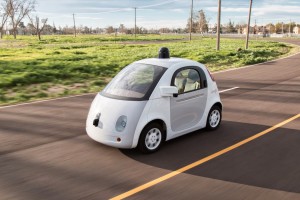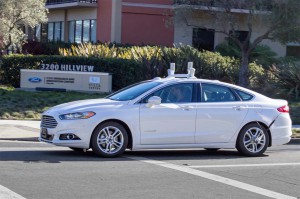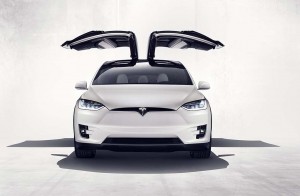Every week brings a flurry of new reports about the coming wave of autonomous vehicles, but a new study finds that only a small minority of American motorists actually want to buy a self-driving vehicle.
Motorists are a bit more open to semi-autonomous technologies that still require a driver to keep their hands on the wheel, but nearly half said they wanted no self-driving technologies at all, according to a study by the University of Michigan Transportation Research Institute, or UMTRI. And more than a third said they would be “very concerned about riding in a completely self-driving vehicle.”
The results of the UMTRI could raise some serious concerns among industry planners. Global automakers are spending billions of dollars to develop self-driving vehicles, with the first semi-autonomous products just starting to come to market. Several makers have announced plans to have fully autonomous models on the road by 2020.
Asked what level of automation they would want in their vehicles, just 15.5% of the 618 respondents said they want something capable of complete self-driving. The figure rose to 38.7% for partially self-driving vehicles. But 45.8% said they want no autonomous capabilities at all.

Google wants to begin testing cars with no steering wheel or pedals - a concept that worries most American motorists.
Women were particularly reluctant to embrace autonomous and semi-autonomous vehicles, 48.4% saying they want no self-driving capabilities in their personal vehicle. Women were also more worried than men about the idea of simply having to ride in a fully autonomous vehicle. 43.0% said they were “very concerned,” compared to 31.3% of men.
Those respondents between the ages of 30 to 44 were most open to various levels of autonomy, 22.2% embracing fully self-driving, and 42.6% wanting partial self-driving. But even there, 35.2% said they want none of this technology on their personal vehicles. The older the driver, the more reluctant they were, only 9.6% of those over 60 embracing the idea of a car capable of driving entirely on its own.
Perhaps the big surprise was that Millennials, those between the ages of 18 and 29, were less enthusiastic than Generation-X. Just 18.8% said they’d like a completely self-driving car, 41.3% of the younger group wanting no self-driving technology.
The first generation of autonomous vehicles are expected to still require an “operator” to remain behind the steering wheel, ready to take control in an emergency. But longer-term, many proponents want to see entirely driverless vehicles come to market. Google hopes to begin testing that concept in the next year or two, and ride-sharing giant Uber has openly expressed a goal of going driverless as a way to reduce the cost of its services.
(Uber launching its own autonomous vehicle program. Click Here to see what it’s up to.)
But that doesn’t play well with American motorists, according to UMTRI. A full 94.5% of the respondents said they still want a steering wheel and brake pedals, “or some other controls” in their vehicles. It didn’t matter what age group or gender, the answer was over 90% for all.
Given that self-driving vehicles likely will become commonplace in the not-too-distant future, the UMTRI survey asked which method motorists would prefer to use to enter a destination. Touchscreen was the favored choice, at 38.0%, with voice commands second, at 34.5% — and the preferred option for women.
Industry experts say they’re not surprised by the results of studies like the new UMTRI survey. Autonomous vehicles have long been the stuff of science fiction and, the experts contend, it will take time for motorists to grow comfortable with the technology once it becomes a daily reality. But, if anything, the Michigan study suggests that potential buyers are growing more, rather than less concerned over time.
A year ago, 43.8% of those surveyed by UMTRI said they wanted no self-driving technology in their personal vehicle. This year, the number rose to 45.8%. Fewer respondents said they were open to either semi-autonomous or fully autonomous vehicles.
(GM and Lyft to begin testing autonomous vehicles. Click Here for more.)
Meanwhile, more of those surveyed have grown concerned about the idea of simply riding in an autonomous vehicle over the last year.
What’s unclear is whether the public’s growing reluctance reflects widespread news coverage over the last year of a series of crashes involving Google’s autonomous vehicle test fleet.
The new UMTRI report follows the release of a similar study focused on China. Jointly conducted by research firms J.D. Power and Associates and Tencent Auto, it found just 9% of Chinese motorists are “very positive” about autonomous vehicles.
With China the world’s largest automotive market and the U.S. the second-largest, the studies collectively suggest that unless consumers begin to warm to self-driving technology, manufacturers could face serious problems actually developing demand for these new vehicles once they come to market.
(Fiat Chrysler open to more autonomous partners than just Google, says CEO Marchionne. Click Here for more.)


